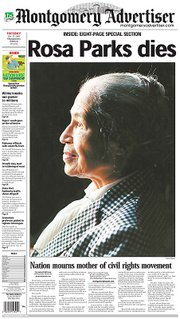- Bermuda shorts,
- Slippers and
- Baseball cap.
Should there be any basic rule and regulations on the attire while sitting for examination? Any comments?
For the first time, Malaysian public universities will be opened to foreigners, with 5% of undergraduate places in critical courses being allocated to them.
Higher Education Minister Datuk Seri Dr Shafie Mohd Salleh described the move as a social obligation to nations with which Malaysia had exploration rights, especially for petroleum.
Other highlights:
Dr Shafie said the ministry was also looking into rating universities based on disciplines and not under a general ranking as published by Britain's The Times Higher Education Supplement.
“When the faculties are highly-rated because they have good lecturers and researchers, then students are more likely to enrol there, resulting in better quality teaching and research,” he said.
Dr Shafie added that the ministry was currently coming up with a paper on the proposal.
He added that the Government's goal for 70% of lecturers in universities have PhDs by 2010, against the current 29.7%, was a tall order.
As a short-term measure, the Government would be beefing up the number of academics by hiring more foreign lecturers with PhDs.
AS a parent I am rather confused by the letter “Distracted from their real work”, (The Star, Nov 10).
The writer seems to suggest that university teaching staff should be promoted based on their research and publications.
Isn't that a conflict of interest here?
How do teaching institutions ensure that staff actually teach with enthusiasm and dedication, and not in a perfunctory manner for the required time and then leave to concentrate on their own research?
After all what incentive is there to teach if your promotions are based on your research?
Furthermore if teaching staff have enough time on their hands to carry out research, why then do we have 60,000 unemployed graduates, who are apparently so poorly trained that they have to be retrained?
Why was the time spent on research not used to teach weaker students?
After all is it not the duty of the teacher to make sure that every student who walks out with a degree is well trained and competent?
We can always leave research to career researchers and scientific staff.
What do you think?
My personal opinion:
If the lecturer concentrating on the teaching alone, we are just imparting the 'done' work or "textbook" subject content to the students.
Research helps to links the theories with the applications especially in the real society or business environment. For social, scientific or business- related researchs, lecturers and students play a major role in discovering new ideas and knowledge - after all university is a powerhouse of knowledge - where new knowledge should be generated and shared.
I would say the lecturers should strive a balance in term of teaching and research. Teaching without doing a research is just like transfering the textbook syllabus to the students. Research without the teaching will limit the sharing and development of the new knowledge.
I strongly believe that it is the VALUE CREATION that each and every lecturer should possess and undertake to assist the students to manifest their potentials and to help the university to become the powerhouse of knowledge, which will drive the development of the society and the nation.
Distracted from their real work
Being an academician, I would like to give my opinion on why the majority of Malaysian universities are not in the ranking list of the world’s top universities.
The fall of Universiti Malaya and Universiti Sains Malaysia in the ranking list, with the exception of Universiti Kebangsaan Malaysia (UKM), of the Times Higher Education Supplement is not really a shock to me.
In fact, I feel it is quite questionable how the three universities were listed in the first place.
Most local universities nowadays don't follow the norms of a university.
They do not use paper publications and citations as the main criteria of appraisal any more.
Each year, we see professors and associate professors being appointed with hardly any good international journal publications to their credit.
I don't think citations are considered at all in appraisals in any of the local universities.
Other important criteria such as appointments to the editorial board of international journals and programme committees of international conferences weren't considered.
The local universities are more interested in participating in exhibitions such as those held in Switzerland, Britain, Germany, Korea and the United States.
They are more interested in bringing home the gold, silver and bronze medals given by the organisers, which hardly have any value.
Over the last few years, there have been many academicians who were appointed as professors and associate professors just because they obtained gold medals in these exhibitions.
How could the two or three judges who are not experts in their respective fields and who evaluate research work have so much influence on our local universities' appraisals?
Moreover, these evaluations were done within five to 10 minutes and yet we see so many local universities are so proud of the gold medal achievements from these exhibitions which are more appropriately termed as “trade fairs.”
A paper submitted to a high-level international journal would normally take weeks and months to be reviewed by experts and professors from the same discipline from well-established universities.
The paper would then need to be revised before being published, if it does not get rejected.
However, there is a high possibility that the paper might be rejected.
Compare this difficulty of getting published in high-level journals to that of getting a gold medal at these trade exhibitions.
And yet we see vice-chancellors publicly rewarding the gold medallists from these exhibitions each year.
One way to measure whether a research has made any breakthrough is to do a survey of the hundreds of university researches which won gold medals over the last few years.
How many of these researches have actually been commercialised and brought revenue to the universities?
I think the Higher Education Ministry and the Science, Technology and Innovation Ministry should stop local universities from participating in these exhibitions.
Academicians should be doing high-level academic work and not participating in trade fairs.
I want to ask whether Harvard, the Massachusetts Institute of Technology, Cambridge, Oxford or even our neighbours, the National University of Singapore and Nanyang Technological University, ever participated in these exhibitions at all to be ranked as the top universities in the world?
STRIVING FOR EXCELLENCE,
Kuala Lumpur.
“We must select vice-chancellors who are capable leaders as well as acknowledged academics in their fields and who are committed to making the university a centre of knowledge. "
Universiti Kebangsaan Malaysia (UKM) vice-chancellor Prof Datuk Dr Mohd Salleh Mohd Yasin said that having a search committee would augur well for local universities that want to become leading institutions.
“Overseas, the appointments of vice-chancellors are largely based on their leadership abilities as well as academic prowess. Now that we are practising meritocracy, we should select the best candidate for the job.”
Universiti Malaya vice-chancellor Prof Datuk Dr Hashim Yaacob said he welcomed the proposed establishment of the leadership institute as lecturers were not trained in administrative matters.
“I think it’s a very good idea as we want only the best. This is also true when selecting a vice-chancellor to head a university,” he added.
Dr Shafie announced that the Government aimed to attract foreign academics of high calibre. Other steps include:
(The Star, 10th November 2005)
- establishing a pool of academics and researchers who were active internationally,
- creating incentives for successful researchers, and
- boosting students’ soft skills.
UM vice-chancellor Prof Datuk Dr Hashim Yaacob said that the marks the university obtained is more significant than its ranking. UM scored 0 in the employer survey and highest (33) for peer review. The university also scored low in citations (1%) and international students (7%).
“I think that universities have taken the ranking exercise more seriously this year and this has resulted in many of them improving their positions greatly.
“I am not worried because we are still within the top 200 and for the first time a Malaysian university has broken into the top 50 in the arts and humanities and the top 100 in the social sciences.”
(The Star, 30th October 2005)
The vice-chancellor noted that there were more than 30,000 universities worldwide and UM still managed to be in the top 200.“I want to share my happiness with you that although there are so many universities in the world, we are number 169,” he said, citing other top universities which had dropped by many notches."
(The Star, 2nd November 2005)
USM vice-chancellor Prof Datuk Dr Dzulkifli Abdul Razak said that the addition of new criteria such as the employer survey could have contributed to the sharp drop in the university’s position.
“Our poor standing could also be attributed to the fact that we are a relatively young university compared to UM which is 100 years old. They have built up a stable reputation in that time.”
Prof Dzulkifli also cited the poor staff-student ratio in Malaysian universities.
“Over the past years we have doubled our intake. USM now has 35,000 students including 28,000 undergraduates but the number of lecturers, about 1,800 has not increased in tandem.”
(The Star, 30th October 2005)
Universiti Sains Malaysia (USM) has engaged a London-based consultant to report on the reasons for USM being dropped from the list of the world's top 200 universities published in The Times Higher Education Supplement 2005.
(The Star, 8th November 2005)
45th in Arts and Humanities,
82nd in Biomedicine and
83rd in Social Science.
The Prime Minister wants Universiti Malaya (UM) to study why its ranking among the world’s top 200 universities slid from 89th position last year to 169th this year.Datuk Seri Abdullah Ahmad Badawi said he was sad to hear of the drastic drop for the country’s oldest university.
“I hope UM will take the necessary action to rectify it.”
(The Star, 30th October 2005)
"...there was no question it must be improved but questioned the accuracy of the survey, especially when a number of respondents were foreign lecturers and students."
(The Star, 30th October 2005)
"...the drop in ranking showed “the deep and prolonged crisis of higher education” in the country and urged the ministry to end its “denial syndrome”."
(The Star, 30th October 2005)
Universiti Malaya’s vice–chancellor should be reprimanded for not being worried that UM has dropped 80 places in the Times Higher Education Supplement (THES) World University Ranking 2005, said Opposition Leader Lim Kit Siang.
Lim said the Cabinet should censure Prof Datuk Dr Hashim Yaacob for his public pronouncement that he was “not worried” and instead felt “great happiness” over the decline of the university’s position in the international ranking.
He also described the situation as “prolonged and worsening crises of higher education” in the country.
In a statement yesterday, Lim called for ministers to highlight the matter during the Cabinet meeting.
(The Star, 6th November 2005)
3 points e-mail proposal to cabinet on world-class universities: (Kit Siang's blog)
Firstly, the establishment of Royal Commission on World-Class Universities in Malaysia, not headed by former government servants but eminent academicians, such as Royal Professor Ungku Aziz, former UM Vice Chancellor Professor Syed Hussein Alatas, former Vice Chancellor of Hong Kong University Professor Wang Gung Wu or distinguished academicians like Dr. Chandra Muzaffar and Prof. K.S. Jomo.
Secondly, the appointment of the “best and brightest” to lead the universities, whether as Vice Chancellor or Deans, starting with the appointment of an outstanding university academic as Vice Chancellor of University of Malaya.Thirdly, the repeal of the Universities and University Colleges Act (UUCA) to restore the critical faculties of inquiry, meritocracy and academic freedom to usher the return of an university ethos of academic excellence, social awareness and national commitment by academicians and students with the ability to know the difference between right and wrong and the passion to right injustices.

 Deputy Sheriff D.H. Lackey of Montgomery fingerprints Parks on 22 February 1956 after the bus boycott prompted a mass arrest of activists
Deputy Sheriff D.H. Lackey of Montgomery fingerprints Parks on 22 February 1956 after the bus boycott prompted a mass arrest of activists
BY BERNARD SEE
PENANG: He was a university undergraduate who worked part-time at night at an apparel store at Suria KLCC in Kuala Lumpur.
While working at the store, the 20-year-old student managed to obtain his customers’ credit card particulars, which he allegedly used to make online purchases of RM100,000 worth of flat screen computer monitors and PDAs.
The youth, who was studying for an accountancy degree at a university in Kuala Lumpur, allegedly bought the monitors online from a multinational computer vendor based in Bayan Lepas here.
Several credit card-issuing banks lodged police reports with the Commercial Crime Department in Kuala Lumpur when their customers complained about unauthorised transactions.
On Aug 18, the student was arrested at his house in Bandar Sungai Long, Kajang, when he accepted a monitor from a courier company worker who delivered the package in an ambush set up by the police.
Police seized 19 monitors and three PDAs from his house.
Investigations showed that the student, who started work at the store in June, had sold most of the items to a middleman.

